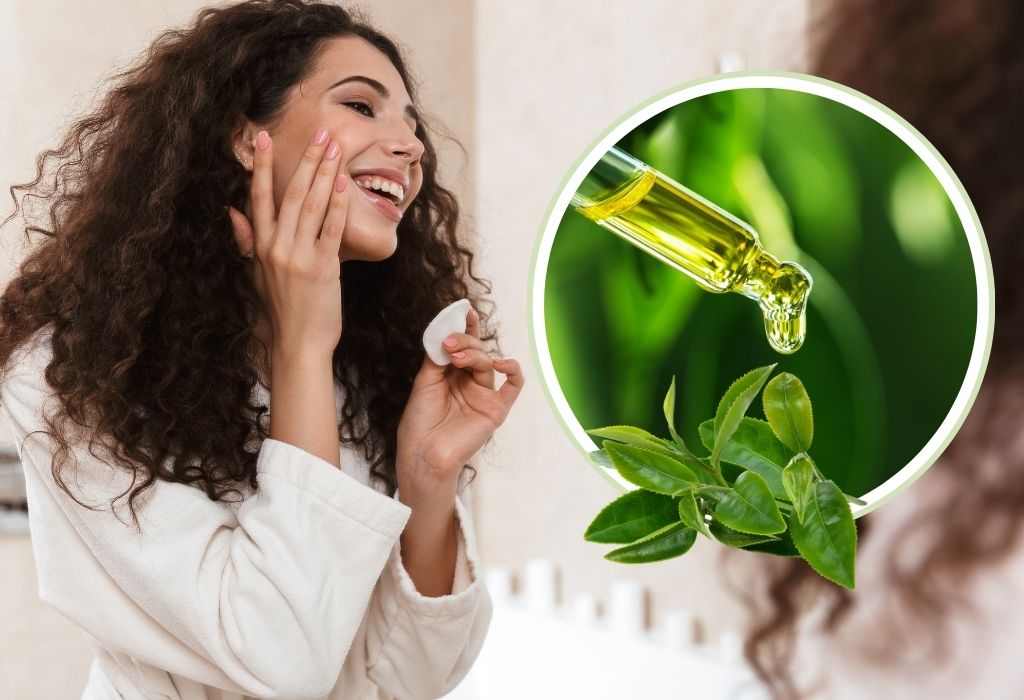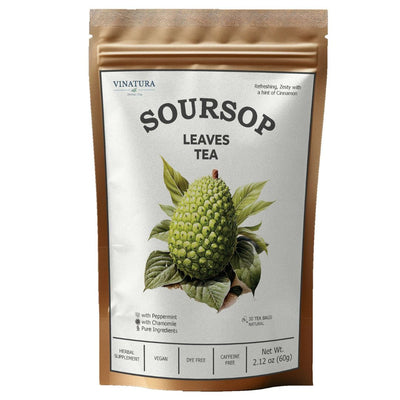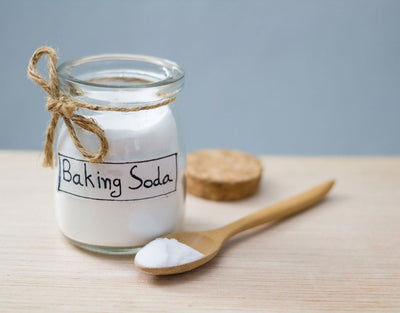
Green Tea Extract Skin Benefits You Shouldn’t Ignore
Today, as interest in skincare and beauty continues to rise, ingredients known for their calming and anti-aging effects are receiving widespread attention. Among them, green tea extract stands out as a natural, gentle option with promising benefits for skin health.
In fact, a growing body of scientific research suggests that green tea and its extract can have a range of positive effects on the skin. In this article, we’ll take a closer look at how green tea extract benefits the skin—and why it deserves a place in your skincare routine.
Before exploring further, please read the disclaimer located at the end of this webpage.
Key Takeaways
- Green tea extract contains EGCG, a powerful polyphenol known for its antioxidant activity, which helps slow down skin aging.
- Multiple studies indicate green tea extract may soothe skin inflammation, reduce redness, and support acne care.
- Beyond anti-inflammatory and anti-acne properties, green tea extract can also enhance hydration, strengthen the skin barrier, and promote a naturally brighter complexion.
- Products containing green tea are generally well-tolerated across skin types, though concentration, purity, and application timing should still be considered.
What Is Green Tea Extract and How Is It Used in Skincare?

Green tea extract is a concentrated substance derived from the leaves of the Camellia Sinensis plant, well known in both traditional and modern medicine for its therapeutic properties.
In the field of cosmeceuticals, green tea extract comes in various forms, including aqueous extract, ethanol extract, and purified forms rich in EGCG (Epigallocatechin gallate)—a compound with particularly high biological activity.
This variety of extraction methods makes it easy to incorporate green tea extract into a wide range of skincare products, including serums, moisturizers, masks, and toners. In fact, many products targeting acne-prone, sensitive, or easily irritated skin now feature green tea extract as a key ingredient.
At this point, it’s natural to ask: what exactly does this extract do for the skin, and why is it used so widely? As it turns out, green tea extract provides several meaningful benefits for the skin which we’ll explore in the next sections.
Green Tea Extract Benefits for Skin

Antioxidant Power – How Green Tea Extract Fights Skin Aging
One of the most prominent features of green tea extract is its powerful antioxidant capacity. This is mainly due to the polyphenol compounds, especially EGCG (Epigallocatechin-3-gallate).
EGCG helps neutralize free radicals, harmful substances generated by external factors such as UV rays, pollution, and oxidative stress. These factors can damage collagen and elastin in the skin, causing the skin to age faster, leading to wrinkles and a loss of elasticity.
In a study published in 2006, researchers found that polyphenols from green tea helped reduce the appearance of wrinkles, improve skin elasticity, and enhance skin tone after several weeks of applying it to the skin.
Additionally, EGCG (a key compound in green tea) may block the action of two enzymes, collagenase and elastase, which are responsible for breaking down the skin’s structure. By doing so, it helps the skin stay firm and youthful for a longer time (Katiya, et al. 2011).
In another study on green tea polyphenols, scientists concluded that applying green tea polyphenols to the skin helps protect it from the sun, reduce inflammation, and act as an antioxidant, making it helpful for addressing common skin concerns such as sensitivity and photoaging (Chiu, et al. 2011).
In other words, signs of skin aging—such as wrinkles, dark spots, pigmentation changes, or a weakened skin barrier—may appear less prominent over time with the consistent use of EGCG-rich green tea extract as part of a well-formulated skincare routine. However, these effects vary and are not guaranteed.
Soothing Inflammation and Redness

Common skin issues such as inflammation, irritation, or facial redness have become daily concerns for individuals with sensitive or acne-prone skin, or for those exposed to long-term environmental pollutants. For these symptoms, green tea extract appears to provide soothing and anti-inflammatory effects through a dual mechanism:
- Suppressing inflammatory cytokines like TNF-α and IL-1β
- Reducing intracellular oxidative stress—a trigger for inflammatory responses
Specifically, one study examining these pathways reported results from a trial where green tea extract was applied to areas of UV-induced redness. The findings showed that skin inflammation and redness decreased significantly within just 48 hours [3].
This suggests that green tea extract is becoming an ideal ingredient for formulations targeting sensitive skin, or for soothing discomfort after cosmetic procedures like laser resurfacing or exfoliation—all of which commonly lead to burning and redness.
However, the study did note limitations in isolating green tea extract’s effects from other potential soothing agents that may have influenced the outcomes. As a result, the findings are not considered exhaustive and require further investigation for a more definitive conclusion.
Acne-Fighting Properties of Green Tea Extract

The acne-fighting effect of green tea extract is one of the main reasons this ingredient has become a star in skincare products designed for oily and acne-prone skin. This benefit is primarily seen through its ability to regulate sebum production.
EGCG found in green tea extract may help modulate hormones by influencing androgen activity [4]. Through this pathway, EGCG can indirectly suppress sebaceous gland activity, reduce sebum secretion, and limit lipid accumulation within sebocytes, which may help reduce excess oil and acne. This mechanism is particularly helpful for managing oily skin, hormonal acne, and blackheads.
In addition, as discussed earlier, green tea extract also has mild anti-inflammatory and antibacterial properties that help reduce the production of inflammatory cytokines and minimize redness around acne spots.
Delving deeper into this effect, an 8-week study conducted in the Philippines with 80 individuals experiencing various types of acne found that using a moisturizer containing 2% green tea extract led to notable improvements in acne-prone skin, showing a significant reduction in lesion count. However, further studies are needed to confirm its long-term role in skincare routines (Lu, et al. 2016).
Green Tea Extract for Hydration and Skin Barrier Support
Although green tea extract is not a direct humectant like hyaluronic acid or glycerin, it plays a crucial role in maintaining skin hydration indirectly and more sustainably. This function is primarily attributed to its ability to reduce TEWL (Trans-Epidermal Water Loss)—the loss of moisture through the epidermis.
A study published in the Journal of Dermatological Science (2014) demonstrated that green tea extract, when combined with borage oil and oral vitamin E for 18 weeks, significantly reduced TEWL after just 2 weeks of use.
It also improved dryness and flakiness in individuals with sensitive or compromised skin barriers, especially those exposed to environmental or chemical stressors. TEWL levels dropped by up to 18% from baseline, indicating improved barrier function (Man, et al. 2015).
This improvement not only helps skin retain internal moisture more effectively but also reduces sensitivity to environmental triggers and inflammation caused by a weakened barrier—especially beneficial for those using retinoids, acids, or those with sensitive, easily irritated skin.
Are There Any Side Effects or Precautions of Green Tea Extract for Skin?

Although green tea extract is generally regarded as safe and gentle, there are a few precautions worth noting, particularly for those using it in high concentrations or on damaged skin. Based on various discussions on Reddit, reported side effects include:
- Dizziness, nausea, or digestive discomfort*
- Feeling tense or jittery when taken in high doses*
- Mild headaches*
Some people also express concerns about potential liver stress when green tea extract is consumed in high concentrations daily, as the body may not process and eliminate it efficiently. Therefore, consulting healthcare professionals before beginning use—especially for high-dose or long-term application—is strongly advised.
In addition, individuals allergic to natural alkaloids or caffeine should monitor their response closely to avoid unexpected reactions.
Proper storage is also important when using green tea extract products, whether topical or oral. Exposure to direct sunlight, heat, or air may degrade the active compounds and reduce effectiveness.
Importantly, while EGCG may help protect cells from UV damage, it is not strong enough to replace broad-spectrum sunscreen. Relying solely on green tea extract for sun defense can lead to stem cell damage and reduce the long-term effectiveness of your skincare routine. This is a common mistake among new users of green tea-based products.
Conclusion
In summary, green tea extract is not only a widely accessible natural ingredient but also a multi-functional compound with valuable applications in skincare. From helping reduce visible signs of aging and soothing sensitive skin to supporting barrier function and improving appearance in acne-prone skin, green tea is a worthwhile addition to any daily skincare routine—especially for those seeking a gentle yet long-term approach.
For optimal results and maximum safety, choose products that feature standardized EGCG content, high purity, and research-backed formulas. These criteria will help ensure the benefits of green tea extract are delivered effectively to your skin.
References
- [1] Katiyar, Santosh K. “Green Tea Prevents Non-Melanoma Skin Cancer by Enhancing DNA Repair.” Archives of Biochemistry and Biophysics, vol. 508, no. 2, Elsevier BV, Apr. 2011, pp. 152–58, https://doi.org/10.1016/j.abb.2010.11.015.
- [2] Chiu, Annie E., et al. “Double‐Blinded, Placebo‐Controlled Trial of Green Tea Extracts in the Clinical and Histologic Appearance of Photoaging Skin.” Dermatologic Surgery, vol. 31, no. s1, Ovid Technologies (Wolters Kluwer Health), July 2005, pp. 855–60, https://doi.org/10.1111/j.1524-4725.2005.31731.
- [3] Yusuf, Nabiha, et al. “Photoprotective Effects of Green Tea Polyphenols.” Photodermatology Photoimmunology & Photomedicine, vol. 23, no. 1, Wiley, Jan. 2007, pp. 48–56, https://doi.org/10.1111/j.1600-0781.2007.00262.x.
- [4] Im, Myung, et al. “Epigallocatechin-3-Gallate Suppresses IGF-I-Induced Lipogenesis and Cytokine Expression in SZ95 Sebocytes.” Journal of Investigative Dermatology, vol. 132, no. 12, Elsevier BV, July 2012, pp. 2700–8, https://doi.org/10.1038/jid.2012.202.
- [5] Lu, P. H., and C. H. Hsu. “Does Supplementation with Green Tea Extract Improve Acne in Post-Adolescent Women? A Randomized, Double-Blind, and Placebo-Controlled Clinical Trial.” Complementary Therapies in Medicine, vol. 25, Elsevier BV, Mar. 2016, pp. 159–63, https://doi.org/10.1016/j.ctim.2016.03.004.
- [6] Man, George, et al. “Therapeutic Benefits of Enhancing Permeability Barrier for Atopic Eczema.” Dermatologica Sinica, vol. 33, no. 2, Elsevier BV, May 2015, pp. 84–89, https://doi.org/10.1016/j.dsi.2015.03.006.
Testimonial Disclaimer
*The testimonials presented on this website are provided by individuals based on their personal experiences with our products. These testimonials represent individual opinions and experiences, which may not be typical or applicable to all users of our products. Results may vary depending on a variety of factors, including individual health, lifestyle, and adherence to product usage instructions.Author

Product Disclaimer
Including an ingredient or study does not evaluate, endorse, or recommend any Vinatura product or any third-party product. Some ingredients discussed may not be used in any Vinatura product.
The content of the articles has not been evaluated by the Food and Drug Administration (FDA) and is not intended to promote or endorse any specific product. Any products sold on this website are not intended to diagnose, treat, cure, or prevent any disease.
Opinions and Endorsements
Any claims, statements, or opinions expressed in the articles are those of the author(s) and do not necessarily reflect the views or opinions of the manufacturers of the dietary supplement products. The products sold on this website are separate from the content of the articles and are not directly endorsed or associated with the information presented here.
Liability Disclaimer
The author(s) of the articles, website, and manufacturers of the dietary supplement products do not assume any liability for any potential consequences arising from the use of the information provided in the articles. Ingredient effects, dosages, and safety vary by individual, formulation, and context; some ingredients interact with medications or may be unsuitable during pregnancy or lactation. It is recommended that individuals consult with a qualified healthcare professional before making any dietary or lifestyle changes, including the use of dietary supplements.
Product Usage
Please refer to the product labels and packaging for specific usage instructions and guidelines for the dietary supplement products sold on this website.
Customer Support
For any concerns or questions regarding the dietary supplement products, please contact our customer support team, who will be more than happy to assist you.





Leave a Comment
Be the first to comment.
What do you think?